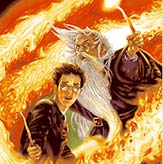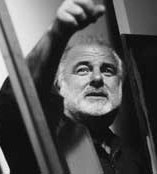 Time, the newsweekly that caused a stir in the mid-60’s by asking “Is God Dead?”, opens this week’s issue with an essay tracing reports of the Deity’s most recent demise to Harry Potter. As the world awaits the release of J.K. Rowling’s final installment of the Potter series, Time’s arts critic, Lev Grossman, charges that “Harry Potter lives in a world free of any religion or spirituality of any kind. He is surrounded by ghosts but has no one to pray to, even if he were so inclined, which he isn’t.”
Time, the newsweekly that caused a stir in the mid-60’s by asking “Is God Dead?”, opens this week’s issue with an essay tracing reports of the Deity’s most recent demise to Harry Potter. As the world awaits the release of J.K. Rowling’s final installment of the Potter series, Time’s arts critic, Lev Grossman, charges that “Harry Potter lives in a world free of any religion or spirituality of any kind. He is surrounded by ghosts but has no one to pray to, even if he were so inclined, which he isn’t.”
Grossman’s attempt at a “Big Think” about the end of Rowling’s phenomenal run has a couple of big holes. Neither Frodo nor any of Lewis’s Pevensie children does much praying in their respective series, as I recall. (When cosmic action is swirling around you, apparently, prayer–that cry for cosmic connection–seems a little redundant.) And not a few books and articles have been written on the spiritual themes found in the Potter books; several even quote Rowling on her debt to Lewis and Tolkien.
What’s most curious, however, is Grossman’s sighing conclusion: “In the new millennium, magic comes not from God or nature or anything grander or more mystical than a mere human emotion.” Which emotion would that be? Love–you know, the one you’ll read about in scripture and sacred writing from the world’s major religions.


